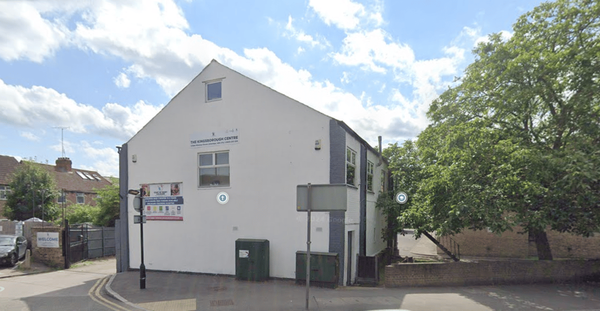
1917
Director - Sam Mendes
Cast - George Mackay, Dean-Charles Chapman, Mark Strong, Benedict Cumberbatch, Colin Firth
No amount of positive press, including this review, will further 1917’s chances at the Oscars more than a behind-the-scenes clip currently spreading like wildfire on social media. It juxtaposes set footage with the final scene from the film, side-by-side for viewers to fully appreciate sheer scale of director Sam Mendes’ vision.
We see the young actor George MacKay emerge from a trench and sprint across a battlefield, as hundreds of soldiers charge directly at the enemy. He falls several times, but with a single-minded devotion to his duty, picks himself up and continues running, directly towards the camera, and us.
Watch the 1917 trailer here
Mendes’ co-writer, Krysty Wilson-Cairns wrote on Twitter that when the scene was being filmed, the crew gasped when MacKay fell the first time — it wasn’t scripted — but the actor’s split second decision to get up and continue the shot created ‘movie magic’.
She’s quite right. The scene is among the finest stretches of action you’re ever likely to see — this year or any other year. It is the crescendo at the end of an epic opera, the zenith of a cinematic peak that I have no idea how Mendes conquered. 1917 is filled with moments of such wonder that I often found myself sitting back in awe, both transfixed by the bombast and somewhat surprisingly, moved by the moments of quiet introspection.
There was another tweet I read recently, in which someone had offered theory as to why female filmmakers are routinely overlooked for awards. They said that while male directors couldn’t help but show off — just this year, Martin Scorsese has dabbled in digital de-ageing and Quentin Tarantino has lovingly recreated period Hollywood on practical sets — the women are more likely to let the stories do the heavy lifting, thereby diverting attention from themselves instead of attracting it. If you consider some of the best films directed by women this year — The Farewell, Booksmart, Gully Boy — you’d have to agree with this theory.

And Mendes most certainly isn’t helping. While he’s never been one to show off (besides that opening shot in Spectre), he appears to be concentrating on little else in 1917 than pulling off an incredible technical feat — the illusion of a single, unbroken shot. Reuniting with his regular cinematographer, the legendary Roger Deakins, Mendes seems to be building on the foundation laid by Alfonso Cuaron in Gravity, and Alejandro Gonzalez Inarritu in Birdman and The Revenant. Each of these three films won their directors Academy Awards, and barring an upset, Mendes will likely pip favourites Martin Scorsese and Bong Joon-ho for the honour at this year’s ceremony.
We open on a rather placid note. Two young soldiers are awoken from their nap and instructed to meet their General (Colin Firth). He informs them that the Germans have feigned a retreat and are preparing an ambush on more than 1500 British troops, who’ve interpreted the fallback as a signal to attack. The young soldiers must travel across enemy lines, brave the elements, and deliver a message to the commander of the 1500-strong battalion (Benedict Cumberbatch), instructing him to call off their assault. The film is structured almost like a video game; mission-oriented, with thinly sketched characters who run into ‘bosses’ after every ‘level’ they complete.
I can only imagine the effect 1917 will have on audiences that aren’t familiar with the techniques Mendes and Deakins are about to unleash upon them. As you watch Lance Corporals Schofield and Blake embark upon their quest, the camera glides through cramped trenches, hovers over bogs of water littered with dead bodies, and floats across expansive fields. In moments of tension, it tiptoes towards the young actors’ faces, and sneaks in for close-ups; in epic action sequences like the one being shared in the viral clip I spoke about earlier, it races across ravaged landscapes. One moment in particular, which involves a distant aerial dog-fight, will make you recoil in your seat. Another, lit entirely by flares will single-handedly win Deakins his second Oscar.

But what Deakins’ camera never, ever does, is stray too far from our two protagonists. 1917 wouldn’t have worked as well as it does had Schofield and Blake not been decent men. On their journey, they come across several soldiers (including a Sikh sepoy) -- each of them more cynical than the last. Lance Corporal Schofield was chosen for the mission quite randomly — a twist of fate that Mendes perhaps intends as a deliberate mirror to the arbitrary manner in which governments send men to war — but towards the end, he transforms from a reluctant hero to a man who represents the bravery of the millions of soldiers who died in World War 1; an entire generation lost.
Amid all the visual razzle-dazzle, 1917 somehow finds the time to make grand humanist statements about war. It isn’t so much interested in the politics of warfare, but like Christopher Nolan’s Dunkirk and Steven Spielberg’s Saving Private Ryan, is more concerned with transporting audiences to the battlefield, so that next time, they have the good sense to not invoke ‘Siachen ke jawaan’ in their petty arguments.
Follow @htshowbiz for more
The author tweets @RohanNaahar







